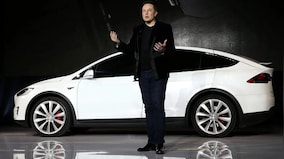It looks like the tinsel dream about electric vehicles is finally showing some cracks. EVs, as it turns out are not as eco-friendly as regular ICE cars, and may be worse not just for the environment, but also for your pocket.
In a trend that should be worrisome for most environmentalists around the world, more and more insurance companies are writing off EVs, declaring them useless and irreparable when they encounter some accident or the other.
No one to repair EVs
In the UK most insurance companies are labelling accidental EVs as total loss or “totalled” if the battery is slightly damaged. In some cases, the cars were written off even if they were slightly damaged, but in critical areas.
Simple accidents damaging EV batteries or their compartments can result in the complete write-off of the vehicle, significantly driving up insurance prices.
The reason? The US, UK and most European countries are facing a critical shortage of trained repair technicians who can work on EVs and carry out operations like replacing battery packs.
This, in turn, is threatening to dampen the already struggling demand for EVs even further in a market where consumer interest in EVs has remained stagnant for nearly two years.
For Insurers and repair companies, the lack of mechanics trained to handle advanced EV repairs is leading to increased repair costs. According to the Institute of the Motor Industry (IMI), less than 10 per cent of the UK’s auto mechanics are qualified to work directly on EV batteries or their cases.
While many technicians can handle basic tasks, the complex nature of EV circuits and the risk of electrocution associated with more challenging repairs require additional training. Furthermore, long wait times for replacement parts and a scarcity of functioning charge points are also contributing to the reluctance of drivers to embrace EVs, as per a report by UK consultants Thatcham Research.
Despite the presence of 1 million EVs on UK roads, the shortage of qualified technicians is expected to worsen, with estimates suggesting a shortfall of about 30,000 technicians by 2035 When the sale of new ICE vehicles gets finally banned
Specialised training is expensive but necessary
In the UK, EV sales have remained stagnant at around 15 per cent of the market share since 2022. Insurance costs for EVs are reported to be double that of conventional ICE vehicles.
Replacement parts for EVs are costly and take longer to arrive, leading to increased downtimes for damaged vehicles and driving up ancillary costs like car rentals. Insurers often choose to scrap the car or sell it for parts.
High repair costs have been a longstanding issue for EV manufacturers like Tesla, especially due to the lack of a dedicated service network comparable to traditional car manufacturers. While the additional training required for EV repairs comes at a cost, the challenges are not insurmountable
Other countries have been more successful in addressing these challenges. In Germany, for instance, the shortage of skilled workers is less pronounced compared to the UK. Norway boasts that an impressive 82 per cent of new cars sold are electric, with no issues regarding repairing EVs, even if the operations are critical. Similarly, Sweden is also making significant strides in improving its mechanics’ EV-repairing skills.
Slowing down sales, second-hand EVs getting cheap
The trend of decreasing prices for used electric cars observed since last year continues into the second quarter of 2024. This drop in prices is likely driven by significant and aggressive price reductions by Tesla, which have also impacted the value of used Teslas and influenced the pricing of other used electric vehicles (EVs) in the US market.
According to recent research by AA Cars, one-fifth of UK drivers are now more inclined to purchase a used EV in the next five years, thanks to a 5.9 per cent decrease in the average prices of used EVs and hybrids.
The prices of the top 20 most searched used EVs and hybrids on the AA Cars platform experienced a similar 5.9 per cent decline in 2023. In the fourth quarter, the average price of the most popular EV and hybrid models listed for sale was £20,392, down from £21,673 during the same period in 2022.
Although people are looking up new EVs online, they aren’t buying them. New EVs are staying on lots longer than desired, with an average of 91 days of inventory. Outlets, on the other hand, want cars to stay in their lots for not more than 60 days.
Consequently, new EV prices have seen a 4.3 per cent decrease year-on-year, with an average selling price of $63,806 according to cars.com’s data.
The continued decline in used EV prices is making them more accessible to a wider range of buyers, with over half of used EV sales potentially eligible for a $4000 rebate.
The average price of new electric vehicles is expected to align with the average price of vehicles across the overall auto industry by the end of 2024, with only a $2000 difference before factoring in any federal rebates.
(With inputs from agencies)







)
)
)
)